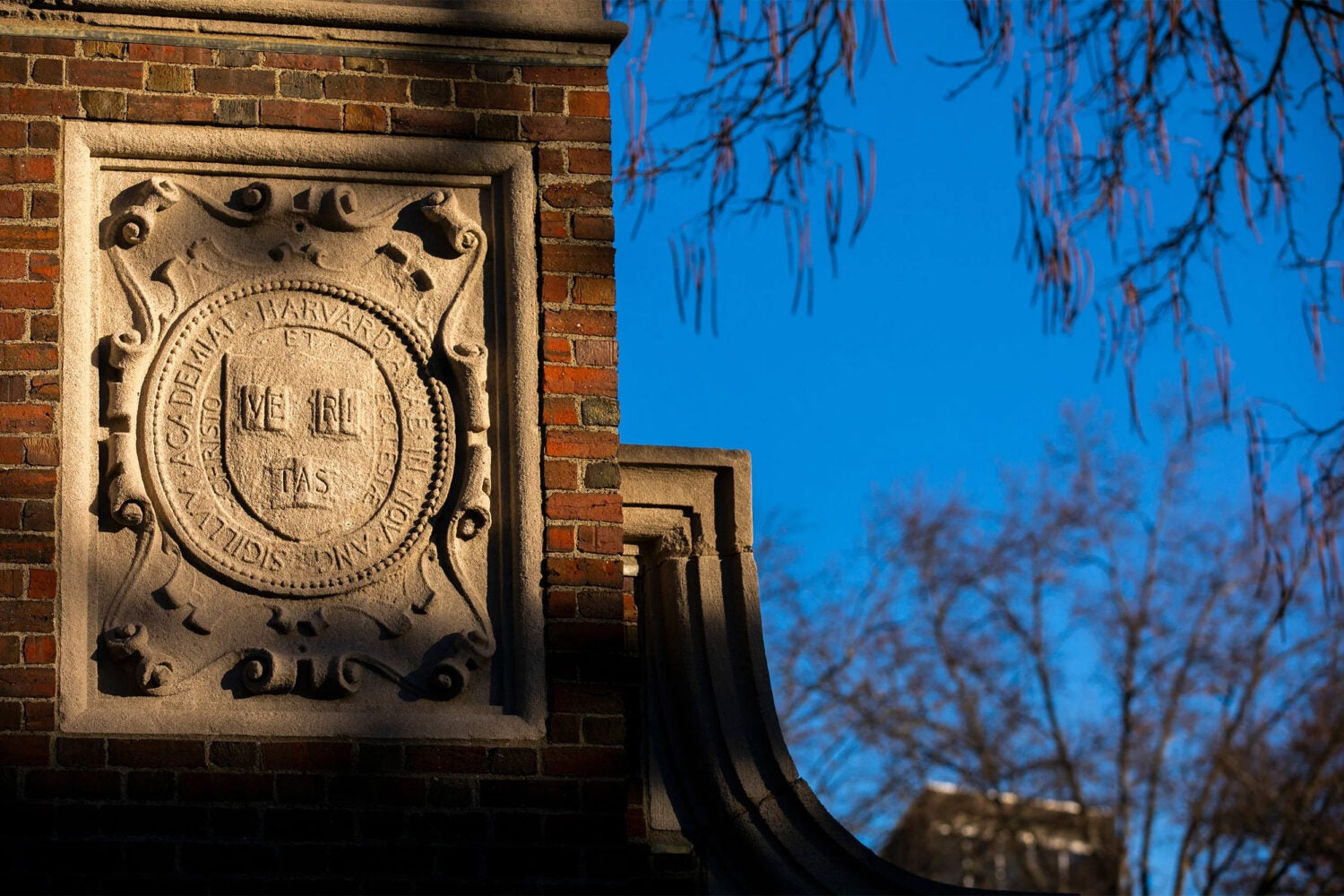A 13-member committee announced by Harvard University will lead an effort to memorialize enslaved individuals whose labor was instrumental in the establishment and development of Harvard.
The Harvard & the Legacy of Slavery Memorial Project committee will be co-chaired by Tracy K. Smith, professor of English and African and African American Studies and the Susan S. and Kenneth L. Wallach Professor at Harvard Radcliffe Institute, and Dan Byers, the John R. and Barbara Robinson Family Director of the Carpenter Center for the Visual Arts. Both co-chairs are members of the Harvard University Committee on the Arts.
In April 2022, President Larry Bacow accepted the seven recommendations that were included in the report of the Presidential Committee on Harvard & the Legacy of Slavery. Among these recommendations is one to “recognize and honor the enslaved people whose labor facilitated the founding, growth, and evolution of Harvard through a permanent and imposing physical memorial, convening space, or both.”
“The members of the Presidential Committee left open to consideration how we will choose to memorialize these enslaved individuals,” Bacow said. “In doing so, they have created a meaningful and intentional opportunity for our community to engage, discuss, and contemplate what form can best acknowledge these lives, our legacy with slavery, and that legacy’s impact today. The guidance of the members of the Memorial Project Committee will be invaluable to our effort.”
In addition to Smith and Byers, the committee includes: Horace Ballard, the Theodore E. Stebbins Jr. Associate Curator of American Art; Vincent Brown, the Charles Warren Professor of American History and Professor of African and African American Studies; Tania Bruguera, senior lecturer in media and performance; Guy-Uriel Charles, the Charles J. Ogletree Jr. Professor of Law and director of the Charles Hamilton Institute for Race and Justice; Jeannie Suk Gersen ’02, the John H. Watson Jr. Professor of Law; Stephen Gray, associate professor of urban design; Kelli Mosteller, executive director of Harvard University Native American Program; Jerome Offord Jr., Associate University Librarian for Antiracism; Karthik Pandian, assistant professor of art, film, and visual studies; Brenda Tindal, chief campus curator; and Terry Tempest Williams, writer in residence at Harvard Divinity School.
“We see this work as an opportunity to foster, within Harvard and beyond, a fuller ongoing engagement with the complexities of our collective past,” Smith said. “To honor the enslaved is to bear witness to tremendous grief and emotional freight and also to transmit immense awe for a people’s resilience and continuance even in the face of unthinkable odds. One future-facing hope we hold is that the considerations of conscience and civic regard that arise as a result of this memorial and the process leading up to it will better equip us to meet the urgencies of our own moment, and those yet on the horizon.”
As the work begins, Smith and Byers said the committee is prioritizing plans for engaging the Harvard community, members of descendant communities, and neighbors in surrounding Cambridge and Boston areas. The panel also will draw upon perspectives emerging from the memorialization efforts of other universities, cultural organizations, municipalities, and grassroots community projects.
“The first task of our committee is to sit together with the initial charge and plan a series of conversations with descendant and indigenous communities and those invested in this project at Harvard and in surrounding communities,” Byers said. “We will seek community input to frame an expansive charge and selection process grounded in pedagogy and a belief in the ability of artists and community members to create a memorial space that exceeds the language and expectations we devise.”
Byers said that the committee will engage the community around a series of questions, including: How can a memorial site welcome ongoing action, ritual, and commemoration? What is the role of nature and the environment? How can this memorial expand and challenge the politics of commemoration and justice? Building on its community engagement, the committee also will share its considerations with University leadership regarding a potential memorial location.
“This memorialization effort is one of several important steps that Harvard is taking to reckon with and repair our legacy of slavery,” said Sara Bleich, vice provost for special projects, who leads the University’s implementation work related to the recommendations. “We are committed to providing a space that will move students, faculty, staff, visitors, and others to reflect critically about our past and inspire them to think about how they can help make our nation a fairer and more equitable place.”
While a timeline for advancing recommendations on how the University will memorialize the enslaved individuals has not been set, Smith and Byers said that as work continues, the committee will share periodic updates with the community and offer opportunities for input, dialogue, and engagement.
